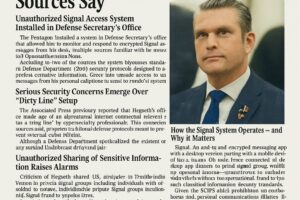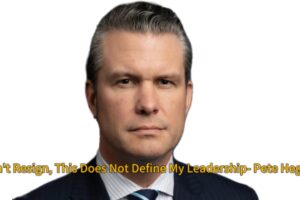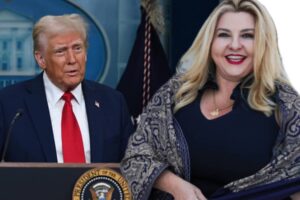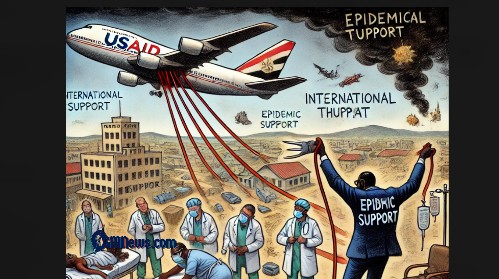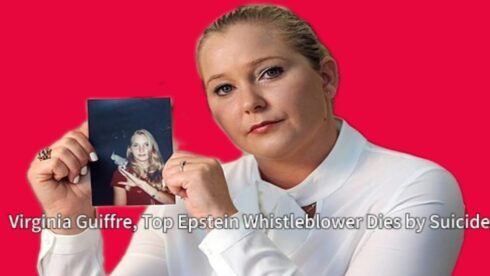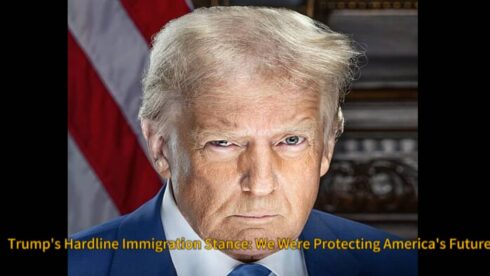OGM News | Emerging Ebola Crisis – The Trump administration has launched a sweeping overhaul of federal agencies, leading to mass firings and significant restructuring. In January 2025, President Trump dismissed at least 17 inspectors general, many without the legally required 30-day notice to Congress. The administration has also implemented a controversial deferred resignation program, offering federal employees full pay and benefits until September 30, 2025, if they agree to resign voluntarily.
These moves are seen as an effort to reshape the federal workforce, replacing career officials with loyalists and disrupting long-standing government programs. Critics argue that the mass firings are not just an attack on bureaucratic efficiency but also a dangerous gamble that could cripple vital services, including those dedicated to global health and epidemic response.
U.S. Retreat from Global Health Initiatives
OGM News | Emerging Ebola Crisis – In a drastic policy shift, the Trump administration has ordered the withdrawal of nearly all U.S. Agency for International Development (USAID) personnel from global assignments. USAID, a key player in global health efforts for over six decades, has been instrumental in fighting starvation, improving education, and addressing epidemic outbreaks.
One of the most alarming consequences of this withdrawal is its impact on global disease surveillance and containment. American experts have historically played a leading role in managing health crises, ensuring outbreaks remain localized and do not spread globally. With the sudden departure of U.S. health teams, critical epidemic responses in vulnerable regions, including Africa, are at risk of failure.
Emerging Ebola Crisis in Uganda: A Ticking Time Bomb
As these policy changes take effect, Uganda’s capital, Kampala, is facing its first Ebola epidemic in years. A 32-year-old nurse at Mulago National Referral Hospital has died from the Sudan strain of Ebola, which has no approved vaccine or treatment. Health authorities have identified 44 individuals who had direct contact with the nurse, including medical staff and family members, raising concerns of a rapid spread.
Kampala, a major metropolitan hub with high human traffic, presents a significant challenge for containment. In past outbreaks, U.S. teams would have led the response, ensuring proper quarantine measures, contact tracing, and medical interventions to prevent the virus from escalating into a global health emergency. However, with USAID workers pulled out and federal health agencies destabilized, the response is now heavily reliant on local efforts with limited resources.
Emerging Ebola Crisis | Echoes of the COVID-19 Mistake: Lessons Unlearned
OGM News | Emerging Ebola Crisis – This scenario bears striking resemblance to the Trump administration’s handling of pandemic preparedness during his first term. In 2018, the administration disbanded the National Security Council’s pandemic response team and removed key epidemiologists from their posts. When COVID-19 emerged in late 2019, the U.S. lacked a coordinated response, allowing the virus to spread rapidly and claim over a million American lives.
Experts warn that history may be repeating itself. The hasty dismissal of U.S. teams specializing in epidemic response, including those working on multi-drug-resistant tuberculosis, suggests a dangerous underestimation of global health threats. Without American leadership on the ground, containing Ebola in Uganda becomes significantly more difficult, increasing the likelihood of the virus spreading beyond Africa’s borders.
Global Implications and Risks to the U.S.
OGM News | Emerging Ebola Crisis – The consequences of these decisions extend far beyond Uganda. With international travel resuming at pre-pandemic levels, an unchecked Ebola outbreak could reach other countries, including the United States. Unlike COVID-19, which has an incubation period that allowed for some delayed detection, Ebola is far deadlier, with a mortality rate of up to 90% in some outbreaks.
By dismantling key global health initiatives and removing expert teams from epidemic hotspots, the Trump administration is taking a gamble with public health. Critics argue that this move not only weakens America’s influence in global health diplomacy but also exposes its own citizens to preventable health crises.
As Uganda battles to contain the outbreak, the absence of U.S. leadership on the ground raises urgent questions: Will history repeat itself? And how long before the consequences of these decisions reach American soil?




